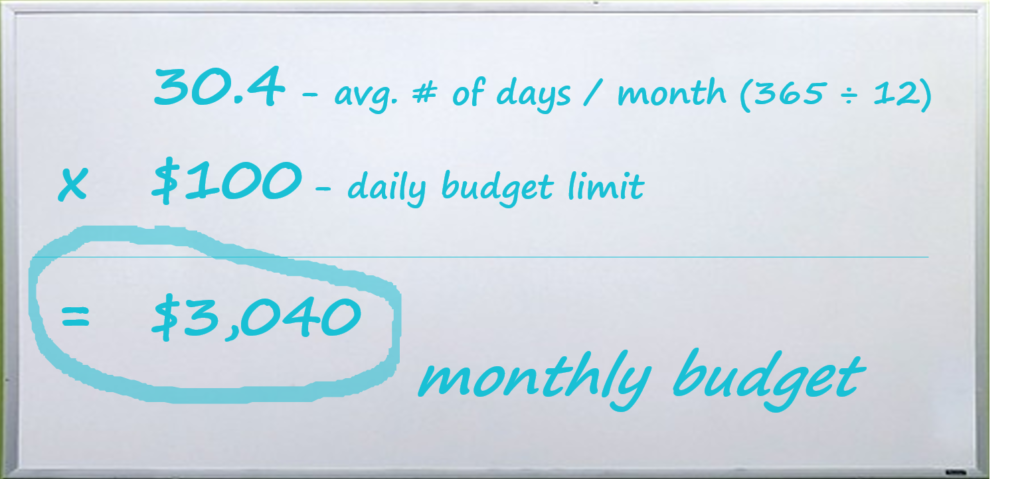Google Increases Daily Spending Limits for Ads Accounts – Here’s What That Means for Advertisers
Google Ads now allows advertisers to spend twice their daily budget on high-volume days. If that has you wondering what the point of a spending limit is if it doesn’t really limit your spending, don’t worry; Mindstream Media Group put together this list of answers to the most pressing questions surrounding the move.
What’s going on?
Google recently announced what could be a major shift in the way Ads budgets are managed. Starting this month, Ads campaigns will be able to spend double their daily budget limit each day. In the announcement, Google said the change will help advertisers reach their goals, like clicks and conversions.
Why did Google make the change?
The reason behind the change, according to Google, is that “internet traffic is like an ocean. Some days, there will be small waves. Other days, there will be great big ones.” Google’s theory is that campaigns perform better when spending is focused on high-tide periods that get enough impressions and clicks to drive growth.
Related – The Latest from Google: September 2017
How does it work?
Google Ads bills advertisers monthly, but spending is controlled by daily budgets. Previously, campaigns could spend up to 20 percent more than their daily budget on any given day. Now, the flexible limit allows campaigns to spend up to double their daily budget. Campaign spending will have a monthly cap, which is determined by the sum of the daily budgets throughout the month. If spending exceeds that cap, Google will credit those dollars to advertisers the following month.
For example, let’s say you’re an advertiser with a daily Ads budget of $100, which means you have a monthly budget of $3,040.

On days with high-search volume, Google will now allow your account to purchase up to $200 in clicks. Over the course of a month, you’ll notice some days hit this $200 level while spending on other days falls well short (e.g., $50 or $75 a day). Basically, overspending on high-volume days is offset by underspending on slow days and the most you pay per month is still $3,040. If your campaign somehow spends $3,240, Google will credit $200 to your account the following month.
What is this going to mean for campaigns?
Ultimately, this change could have a positive impact on campaigns. Less rigid daily budgets allow advertisers to optimize campaign spending to the times it makes most sense – i.e., when there’s more relevant search volume. It’s like how retail stores make their schedules – they invest more heavily (pay more employees to work) on busy days and lower staff levels on days when business is expected to be slow.
The added flexibility could especially benefit multi-location brands, specifically those with limited budgets at the individual location level. Restrictive budgets often diminish an advertiser’s ability to capture all relevant search queries and garner enough clicks to perform to a historical average each day. And, when accounts are limited in the number of daily clicks they can purchase, campaigns are more prone to performance volatility.
Related – [Video]: Taking Control of Your Presence on Google
How big of an impact will this have?
It’s too soon to determine the total impact, but greater flexibility in daily budgeting could help stabilize overall spending and allow accounts to hit their monthly targets more accurately. One thing is for sure, it’ll be interesting to see how advertisers respond to the benefits that increased spending can bring to their AdWords accounts.
Who knows, it could lead to a lot of advertisers upping their Ads budgets. Which I’m sure Google will be OK with.
Mindstream Media Group is a Google Premier Partner. Connect with us to learn how we can help manage your paid search campaigns.
More from Mindstream Media Group

Meet the Mindstreamer – Chandler Swanner
Chandler Swanner’s interest in advertising dates back to her childhood. Her mother (and role model in life) was a Media […]

Third-Party Cookie Phase-Out: What Marketers Need to Know
Cookies are an essential part of internet usage, allowing websites to remember you and provide a more personalized experience. This […]

Meet the Mindstreamer – Kaya Bucarile
She plans and oversees media strategy for agency clients, working closely with project and platform managers to ensure that we […]
